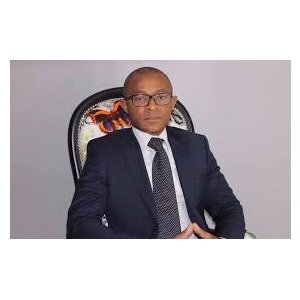
Dr Jean Louis Stephane B. ENUELEGUELE
Senior managing Partner
Stéphane BOBÉ ENGUELEGUELE is a seasoned Consultant and barrister at the Cameroon BAR Association; an expert in public governance, law, and AI-based sustainability. He has fluency in English, German, and French and has coordinated esteemed research groups like the Association of Public Governance and New Leadership.
As the founder of the SCP MAJOR & TAMAEN Law Firm, Cameroon, Stephane specializes in Intellectual Property Law, Commercial and Arbitration Law, and in AI transition processes.
Stéphane has a notable legacy as the former president of the Young Barristers Union of Amiens (2007-2008), advocating for the rights of the Youth and the Poor for free justice and public service access. With 25 years of advocacy experience, he has worked extensively with UNDP on the rule of law and anti-corruption in numerous West African nations. This involved engaging with high-level officials, private sector board members, and significant CSOs, reinforcing his prowess in public-private interactions.
Stéphane has skills in Strategy Management, Sustainable Finance, and Global Affairs, Stéphane remains a vital force in his fields, and involved in intersection of technology, environmental stewardship, and financial resilience, resonating strongly with global Environmental, Social, and Governance (ESG) concerns. Globally, ESG concerns have moved from the periphery to the core of strategic decision-making for governments, businesses, and individuals.
The escalating effects of climate change, the growing demand for social justice, and the need for transparent and ethical governance have catalyzed this shift. However, traditional methods of environmental and financial assessments are often fragmented and need more depth to tackle these complex issues effectively. SovereignPiAlpha’s project leverages AI to provide a multidimensional analysis of environmental and economic scenarios. This approach is critical in a world where ESG issues are interconnected and dynamic. The AI models transcend traditional analytical boundaries by incorporating structured data, emotions, and narratives, offering a more nuanced understanding of climate and sustainability issues.


